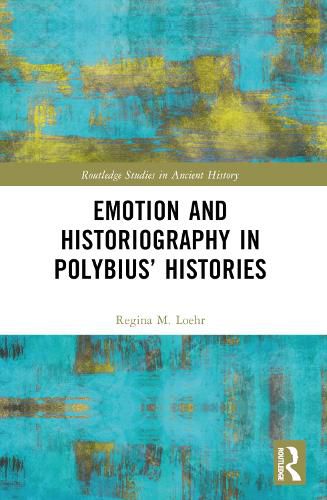Readings Newsletter
Become a Readings Member to make your shopping experience even easier.
Sign in or sign up for free!
You’re not far away from qualifying for FREE standard shipping within Australia
You’ve qualified for FREE standard shipping within Australia
The cart is loading…






This volume explores emotion and its importance in Polybius' conception of history, his writing of historiography, and the benefits of this understanding to readers of history.
How and why did ancient historians include emotions in their texts? This book argues that in the Histories of Polybius - the Greek historian who recorded Rome's rise to dominion in the ancient Mediterranean - emotions play an effective role in history, used by the historian to explain the causes of actions, connect events, and make sense of human behavior. Through analysis of the emotions in the narrative and theory of Polybius' Histories using critical terminology and frameworks from modern philosophy, psychology, and political science, this work calls into question assumptions that emotions were purely irrational and detrimental in ancient history, politics, and historiography. Emotions often positively shape Polybius' historical narrative, provide criteria for the success and morality of agents, actions, and even historians, and aid the historian in guiding readers to become intelligent leaders and citizens of a new world centered on Rome.
Emotion and Historiography in Polybius' Histories is a fascinating read for students and scholars of ancient historiography and history, as well as those working on ancient political thought, emotions in the ancient Greek world, and emotion in history and literature more broadly.
$9.00 standard shipping within Australia
FREE standard shipping within Australia for orders over $100.00
Express & International shipping calculated at checkout
This volume explores emotion and its importance in Polybius' conception of history, his writing of historiography, and the benefits of this understanding to readers of history.
How and why did ancient historians include emotions in their texts? This book argues that in the Histories of Polybius - the Greek historian who recorded Rome's rise to dominion in the ancient Mediterranean - emotions play an effective role in history, used by the historian to explain the causes of actions, connect events, and make sense of human behavior. Through analysis of the emotions in the narrative and theory of Polybius' Histories using critical terminology and frameworks from modern philosophy, psychology, and political science, this work calls into question assumptions that emotions were purely irrational and detrimental in ancient history, politics, and historiography. Emotions often positively shape Polybius' historical narrative, provide criteria for the success and morality of agents, actions, and even historians, and aid the historian in guiding readers to become intelligent leaders and citizens of a new world centered on Rome.
Emotion and Historiography in Polybius' Histories is a fascinating read for students and scholars of ancient historiography and history, as well as those working on ancient political thought, emotions in the ancient Greek world, and emotion in history and literature more broadly.